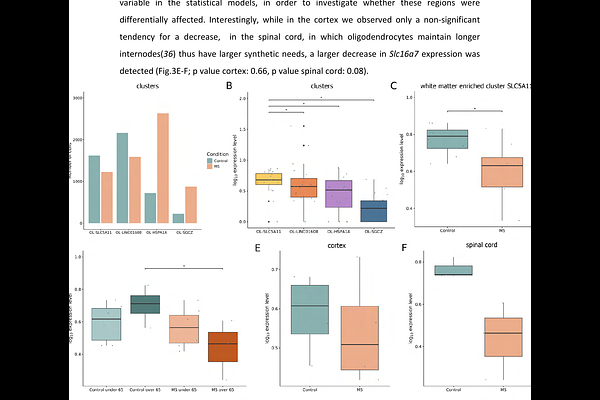Monocarboxylate transporter 2 is required for the maintenance of myelin and axonal integrity by oligodendrocytes

Monocarboxylate transporter 2 is required for the maintenance of myelin and axonal integrity by oligodendrocytes
Izagirre-Urizar, L.; Mora-Huerta, L.; Soler-Saez, I.; Morales-Gallel, R.; Ulloa-Navas, M. J.; Chara, J.-C.; Calovi, S.; Deboux, C. J.; Merino-Cacho, L.; Domercq, M.; Zugaza, J.-L.; Pellerin, L.; Garcia-Garcia, F.; Garcia-Verdugo, J. M.; Matute, C.; Nait Oumesmar, B.; Tepavcevic, V.
AbstractNeurodegenerative pathologies including multiple sclerosis (MS) are consistently associated with energy deficit in the central nervous system (CNS). This might directly impact myelinating oligodendrocytes as these are particularly vulnerable to metabolic insults. Importantly, oligodendroglial dysfunction and myelin alterations occur in most, if not all neurodegenerative diseases, and are associated with axonal pathology/loss. Thus, elucidating metabolic mechanisms required for oligodendroglial myelin maintenance and axonal support might be crucial to identify therapeutic targets to achieve neuroprotection. While monocarboxylates are important energy fuels for the CNS, their role in myelinating oligodendrocyte function remains unclear. Here we show that, just like neurons, myelinating oligodendrocytes express high affinity monocarboxylate transporter 2 (MCT2) both in mice and humans, which is downregulated in progressive MS. While deletion of MCT2 in mouse oligodendrocytes did not affect the survival of these cells, it resulted in downregulation of lipid synthesis-associated enzymes and failure of myelin maintenance. Moreover, axonal upregulation of lactate dehydrogenase A concomitant with axonal damage was observed but could be alleviated by ketogenic diet. We conclude that oligodendroglial MCT2 is required for myelin maintenance and axonal support, which becomes altered in progressive MS, but may be compensated for by specific metabolic therapies.